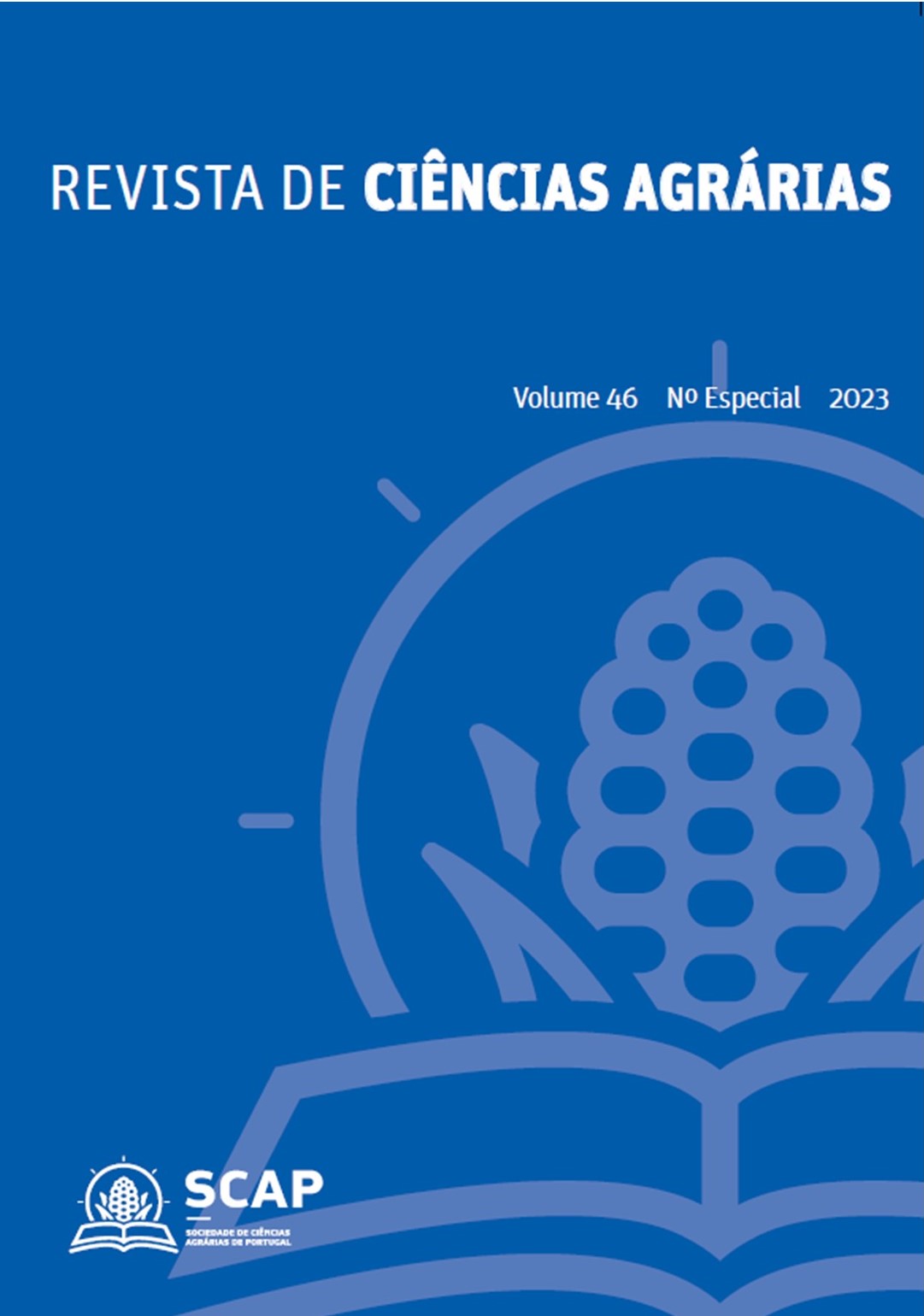Annual ryegrass growth responses to soil organic amendment with different olive pomace-based composts
DOI:
https://doi.org/10.19084/rca.33404Abstract
The wet olive pomace (BA) from the two-stage extraction system is an environmental problem, especially for Portugal. One of the valorisation alternatives is composting to eliminate its phytotoxicity. This alternative, combined with the application of organic compost (OC) in the poor soils in organic matter of the Transmontane region, can be a strategy to combat the susceptibility of the territory to desertification. This work presents the results in fresh and dry biomass obtained in a trial to evaluate the plant growth of annual ryegrass (Lolium multiflorum Lam.) in soils amended with CO based on BA. The trial was conducted in pots under greenhouse conditions, considering three OC with different proportions of BA (A, B and C), one commercial OC and four application doses (0, 10, 20 and 40 t.ha-1). There were significant differences between OC and doses, and the interaction between these factors was verified, which can be explained by the different growth curves in response to the rate of nutrient availability. Compost C, with 25% of BA, stands out and tends to outperform the commercial OC at the highest doses. This study shows the potential of using olive pomace-based composts to increase plant growth in poor soils typical of olive groves in NE Portugal.


